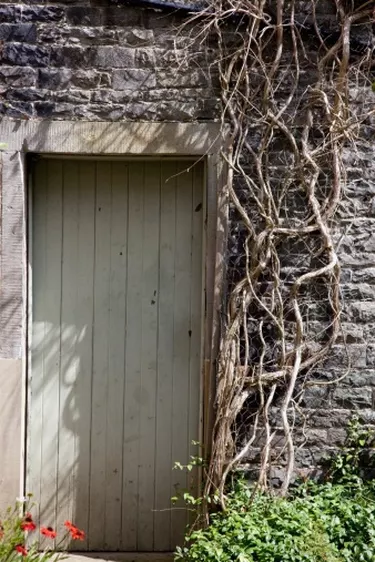
When people think of building a shed, they often think of construction equipment and the costs associated with building plans, timber, foundations and labor. However, there are many different types of sheds. While some can be made of wood, others are made of alternative materials that are easier to construct, and some make use of your house to lower costs. Do not be intimidated by the idea of a garden shed. Explore all your options and find what works for you.
Corner Sheds
Video of the Day
Corner sheds are often made of wood, and back into the corner of your fence or house. The benefits to corner sheds are clear. By having an entire corner and as many as two walls made up from existing supports, they cut down on necessary materials and labor. If you use a simple triangle shape, you only need to worry about a single wall.
Video of the Day
Plastic Kits
Plastic kits provide you with the shed materials to make a variety of shed sizes out of vinyl walls. These vinyl materials, typically PVC, are a plastic compound that resists weather and temperature changes. If you have sprinklers, your sprinkler lines are probably made from the same materials. If you want your shed to be environmentally friendly, you may not like PVC, but the kits make it easier to construct the shed in any level area you want.
Metal Kits
Metal kits are similar to plastic kits, but along with the tools the kit provides it gives you walls of corrugated steel or aluminum for the shed. These sheds are durable and save on both labor and long-term maintenance costs, but there are limitations to using a metal shed. The materials are more difficult to maneuver when constructing the shed, and even aluminum can rust if it is exposed to salty seaside air.
Tarp-Based
Tarp sheds are made from a skeleton structure of support beams, often plastic or metal, with durable sheets wrapped around them. Some kits with tarps are designed to fit over pre-made skeletons, but you can also construct your own. The tarp can be vinyl (or thinner plastic) or canvas. It will be easier for heat (and pests) to enter and exit from these sheds.